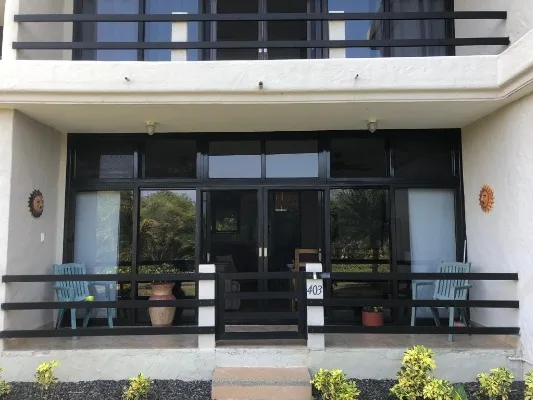Press freedom under threat in Ecuador, journalists say; media is frequent target of criticism by President Correa
By Gonzalo Solano and Frank Bajak
Investigative journalist Juan Carlos Calderon received multiple death threats after launching something rare in the claustrophobic media climate of today’s Ecuador, a digital magazine exposing high-level corruption.
To Calderon, the threats were a backhanded compliment for his inaugural story in Plan V that outlined multimillion-dollar insurance fraud affecting state institutions. He brushed them off until a pair of menacing-looking men showed up at his condo complex looking for his home.
‘‘When they get to your family, to your house, things change,’’ he said.
Although physical attacks on journalists are rare in Ecuador, in contrast to such countries at Colombia, Peru and Mexico, the profession faces increasingly hostility, and international press freedom and human rights groups place the blame squarely on President Rafael Correa.
The third-term president is widely popular for generously spending the OPEC nation’s oil wealth on social programs. Nonetheless, Correa has shown little tolerance for criticism.
‘‘The president has viewed the press as the enemy from the moment he took office. He considers us his only enemy because there is no political opposition,’’ said Janet Hinostroza, who resigned as a daily TV news anchor last year after a crescendo of threats peaked with a phone call detailing her young son’s daily movements and threatening to kidnap him.
Jose Miguel Vivanco, regional director for U.S.-based Human Rights Watch, said Correa’s ‘‘high level of intolerance for criticism’’ has led to media regulations and multimillion-dollar legal judgments against journalists, all of which have intimidated the press into self-censorship and undermined freedom of expression.
Calderon faced bankruptcy a year ago when Correa won a $1.1 million defamation judgment over his reports that the president’s brother illegally received state contracts after Correa’s election. The judge did not rule on the report’s accuracy.
Correa pardoned Calderon, just as he pardoned critics at the opposition newspaper El Universo, against whom he had won a $42 million defamation judgment.
‘‘I’m forgiving,’’ Correa said then. ‘‘I’m not forgetting.’’
The Associated Press left phone messages and sent emails to Correa’s director of communications, Fernando Alvarado, seeking comment but received no response.
The harassment campaign has even crossed international borders. Pro-government protesters assailed Hinostroza in New York in late November as she accepted a press freedom award at a gala fundraiser for the Committee to Protect Journalists. About 150 pickets stood outside the Waldorf Astoria Hotel chanting and carrying signs branding Hinostroza a traitor and a liar. Back home, virulent attacks on social media spiked against her.
Correa ‘‘says we conspire against him, but all we’ve done is expose corruption in his government or been critical,’’ Hinostroza said by phone after returning to Ecuador, where she now has a weekly TV news show and writes a column for the newspaper Hoy.
Hinostroza and Calderon have long been among Correa’s main targets in his weekly TV and radio appearances.
Most Saturdays, the president commandeers the airwaves for several hours, just as the late Venezuelan President Hugo Chavez did, and disparages journalists as ‘‘puppets of the oligarchy’’ and ‘‘miserable assassins of ink.’’
Jorge Imbaquingo, a former newspaper journalist now employed by Universidad de Las Americas in Quito, said Correa’s efforts to blame ‘‘all the country’s ills on journalism’’ foments open hostility against reporters.
‘‘Sometimes people insult you. They say, ‘Get out of here,’ when you’re trying to cover a news event. Sometimes they spit at you,’’ Imbaquingo said.
Correa’s administration also has squeezed newspapers and broadcasters by withholding advertising and encouraging private businesses to do the same.
A law passed in June further tightened the screws by creating two media regulatory bodies that have been packed with Correa loyalists — the Information Authority and the Communications Regulation Council.
The bodies have the power to levy fines on media deemed guilty of slander or discrimination. Those offenses haven’t been clearly defined, however, spawning fears the bodies will act arbitrarily to silence critical media into submission.
A statute fleshing out the law is pending, and is expected to also apply to speech on social media.
News organizations can now be fined 10 percent of their revenues for the previous three years, which would bankrupt them. A previous law passed under Correa had already restricted the financial resources of owners of independent news media by barring them from holding interests in other economic sectors.
Calderon invested his own money to help fund Plan V — which Cesar Ricaurte, the director of the press freedom group Fundamedios, calls the last redoubt of investigative journalism in Ecuador.
Its staff mostly followed Calderon from the magazine Vanguardia, which was founded in 2005 and folded in June. He said there’s enough money to pay salaries and rent for six months.
Indeed, Calderon said, journalism is ‘‘the most elegant way to be poor.’’
Credit: Associated Press, www.ap.org; Photo caption: President Rafael Correa





















